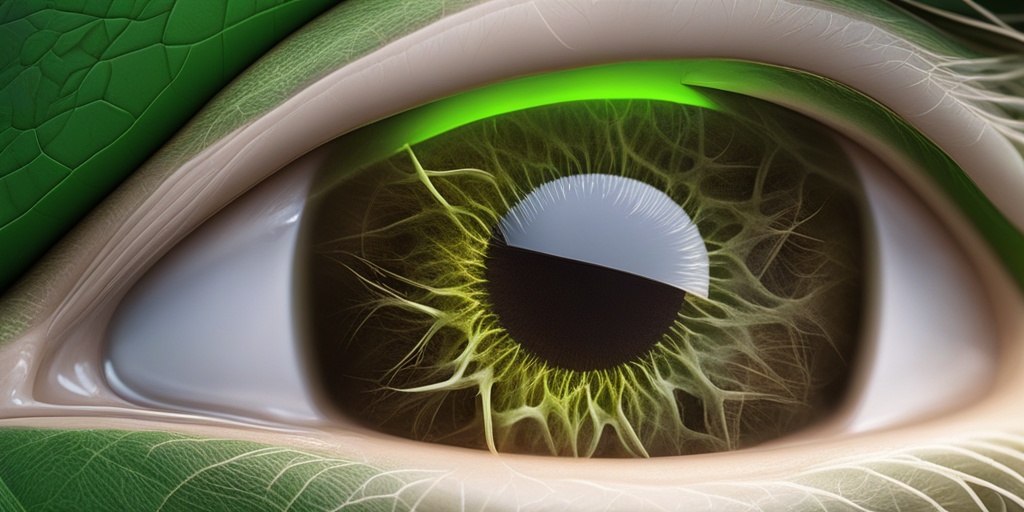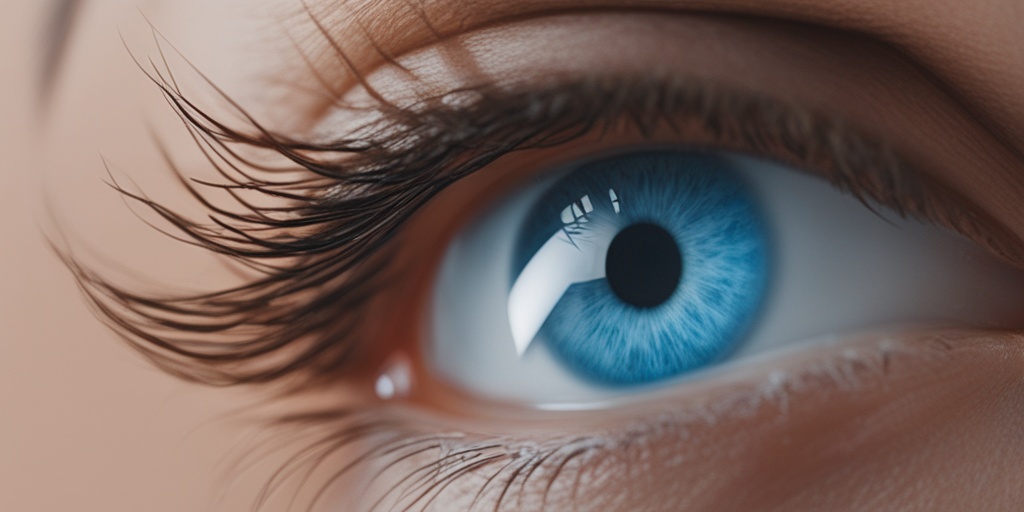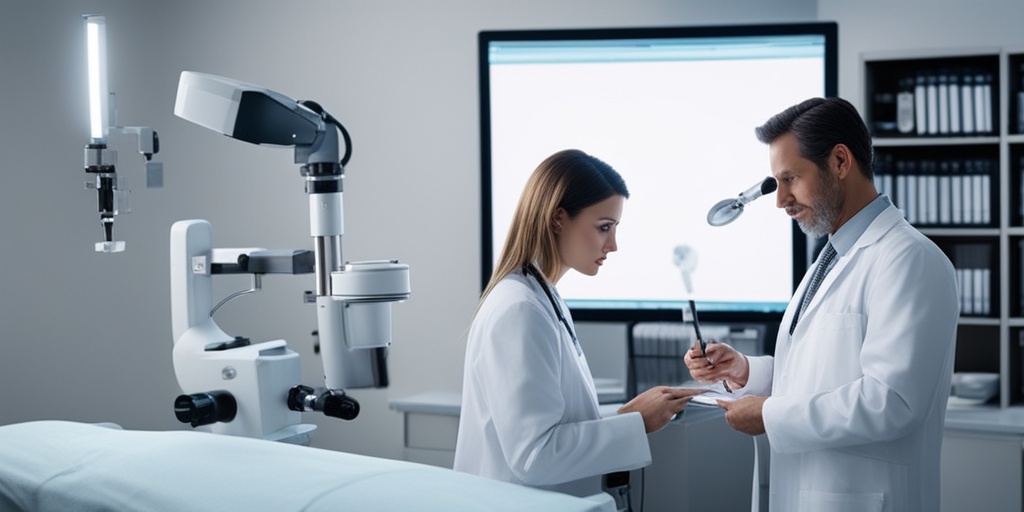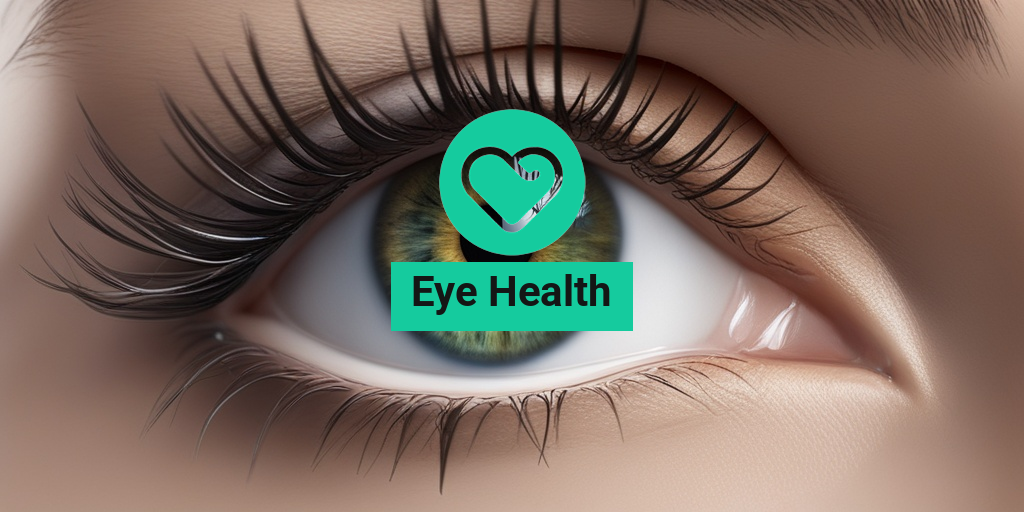What Is Eye Health?
When we think about our overall health, we often focus on our physical well-being, mental health, and even our skin health. But have you ever stopped to think about the importance of eye health? Our eyes are one of the most vital organs in our body, and taking care of them is crucial for our overall quality of life.
The Definition of Eye Health
Eye health refers to the overall well-being of our eyes and our ability to see clearly. It encompasses not only our visual acuity but also the health of our eyes, including the cornea, lens, retina, and optic nerve. Good eye health means that our eyes are free from diseases and disorders that can affect our vision, such as cataracts, glaucoma, and age-related macular degeneration.
Factors Affecting Eye Health
Several factors can affect our eye health, including:
- Genetics: Our genetic makeup can play a role in our eye health, with certain conditions being inherited from our parents.
- Lifestyle choices: Our diet, exercise habits, and exposure to UV radiation can all impact our eye health.
- Aging: As we age, our eyes undergo natural changes that can affect our vision and increase our risk of eye diseases.
- Environmental factors: Exposure to pollution, smoke, and other environmental toxins can harm our eyes.
Importance of Eye Health
So, why is eye health so important? The answer is simple: our eyes are our windows to the world, and without good eye health, our quality of life can be significantly impacted.
Impact on Daily Life
Poor eye health can affect our daily lives in many ways, including:
- Difficulty with daily tasks: If we struggle to see clearly, everyday tasks like reading, driving, and cooking can become challenging.
- Impact on mental health: Vision loss can lead to feelings of isolation, depression, and anxiety.
- Reduced independence: If we’re unable to see clearly, we may need to rely on others for assistance, which can affect our independence.
Link to Overall Health
Did you know that our eye health is also linked to our overall health? Research has shown that certain eye conditions can be indicative of underlying health issues, such as:
- Diabetes: Diabetic retinopathy is a common complication of diabetes that can cause vision loss.
- High blood pressure: Hypertension can increase our risk of developing eye diseases like glaucoma.
- Dementia: Studies have found a link between eye health and cognitive decline, with some research suggesting that eye exams could be used to detect dementia earlier.
By taking care of our eye health, we’re not only protecting our vision but also our overall well-being. If you’re concerned about your eye health, consider speaking with an eye care professional or using online resources like Yesil Health AI for evidence-based health answers. 🙏
Remember, eye health is just as important as any other aspect of our health. By prioritizing our eye health, we can enjoy a better quality of life and reduce our risk of eye diseases. 👓

Common Eye Problems
Our eyes are one of the most vital organs in our body, and taking care of them is essential for our overall health and well-being. However, many of us take our eye health for granted until we encounter problems. In this article, we’ll discuss some common eye problems that can affect anyone, regardless of age or gender.
Refractive Errors
Refractive errors are the most common eye problems that affect millions of people worldwide. These errors occur when the shape of the cornea or lens of the eye is not perfect, causing light to focus incorrectly on the retina. The three main types of refractive errors are:
- Myopia (Nearsightedness): When close objects are clear, but distant objects appear blurry.
- Hyperopia (Farsightedness): When distant objects are clear, but close objects appear blurry.
- Astigmatism: When the cornea or lens is irregularly shaped, causing blurry vision at all distances.
Cataracts
Cataracts are a clouding of the lens in the eye that affects vision. Most cataracts are age-related, but they can also be caused by injury, certain medications, or medical conditions. Symptoms of cataracts include:
- Cloudy or blurry vision
- Double vision or ghosting
- Sensitivity to light
- Fading or yellowing of colors
Glaucoma
Glaucoma is a group of eye conditions that damage the optic nerve, leading to vision loss and even blindness. It’s often associated with increased pressure in the eye, but not always. Symptoms of glaucoma include:
- Blind spots or patchy vision
- Eye pain or pressure
- Nausea and vomiting
- Redness of the eye
Eye Health Symptoms
Eye health symptoms can be subtle, and sometimes, they can be mistaken for other conditions. It’s essential to recognize the signs and symptoms of eye problems to seek timely medical attention. Here are some common eye health symptoms to watch out for:
Redness and Irritation
Red, itchy, or irritated eyes can be a sign of various conditions, including dry eye syndrome, allergies, or infections. If you experience persistent redness or irritation, consult an eye doctor to rule out any underlying conditions.
Blurry Vision
Blurry vision can be a symptom of refractive errors, cataracts, or other eye conditions. If you experience blurry vision, especially in one eye, it’s essential to schedule an eye exam to determine the cause.
Eye Discharge or Crusting
Eye discharge or crusting can be a sign of an infection, such as conjunctivitis (pink eye). If you experience excessive discharge or crusting, especially with redness or swelling, seek medical attention.
Sensitivity to Light
Sensitivity to light, also known as photophobia, can be a symptom of various eye conditions, including cataracts, glaucoma, or dry eye syndrome. If you experience sensitivity to light, it’s essential to consult an eye doctor to determine the underlying cause.
Remember, taking care of your eye health is crucial for your overall well-being. If you experience any of these symptoms or have concerns about your eye health, schedule an eye exam with an eye doctor today! 👓

Eye Health Risk Factors
When it comes to maintaining good eye health, it’s essential to be aware of the risk factors that can increase your chances of developing eye problems. While some risk factors are unavoidable, others can be managed or even prevented with the right lifestyle choices and precautions. In this section, we’ll explore the common risk factors that can impact your eye health.
Aging and Eye Health
As we age, our eyes undergo natural changes that can affect our vision and increase the risk of eye diseases. After the age of 40, the lens in our eye becomes less flexible, making it harder to focus on close objects. This is a natural part of aging, but it can also increase the risk of age-related macular degeneration (AMD), cataracts, and glaucoma.
Family History and Genetics
If you have a family history of eye diseases or conditions, you may be more likely to develop them yourself. For example, if your parents or siblings have AMD, glaucoma, or cataracts, you should be more vigilant about getting regular eye exams and taking steps to protect your eye health.
Lifestyle Factors
Certain lifestyle factors can also impact your eye health. These include:
- Smoking: Smoking is a significant risk factor for AMD and cataracts. Quitting smoking can significantly reduce your risk of developing these conditions.
- UV Exposure: Prolonged exposure to UV radiation from the sun or tanning beds can increase your risk of cataracts and AMD. Wearing sunglasses with UV protection and seeking shade, especially during peak sun hours, can help reduce this risk.
- Diet and Nutrition: A diet rich in fruits, vegetables, and omega-3 fatty acids can help support eye health. Conversely, a diet high in processed foods, sugar, and saturated fats can increase your risk of eye problems.
- Physical Inactivity: Regular exercise can help reduce your risk of developing eye diseases, such as AMD and glaucoma.
Medical Conditions
Certain medical conditions, such as diabetes, high blood pressure, and multiple sclerosis, can increase your risk of developing eye problems. Managing these conditions through medication, diet, and lifestyle changes can help reduce this risk.
Eye Health Diagnosis
Early detection and diagnosis are critical for effective treatment and management of eye diseases. If you’re experiencing symptoms or have concerns about your eye health, it’s essential to schedule an appointment with an eye care professional.
Eye Exams and Tests
A comprehensive eye exam typically includes a series of tests to assess your vision, eye health, and detect any potential problems. These tests may include:
- Visual Acuity Test: This test measures your ability to see objects at a distance and up close.
- Refraction Test: This test determines your prescription and helps your eye doctor correct any refractive errors.
- Slit Lamp Exam: This test uses a specialized microscope to examine the surface of your eyes and detect any signs of disease or damage.
- Dilated Eye Exam: This test involves dilating your pupils to allow your eye doctor to examine the retina and optic nerve.
Common Eye Health Tests
In addition to a comprehensive eye exam, your eye doctor may perform additional tests to diagnose specific eye conditions. These tests may include:
- Tonometry: This test measures the pressure inside your eye to detect glaucoma.
- Optical Coherence Tomography (OCT): This test uses light waves to create detailed images of your retina and optic nerve.
- Fluorescein Angiography: This test uses dye and a special camera to examine the blood vessels in your retina.
By understanding the risk factors and diagnostic tests for eye health, you can take proactive steps to protect your vision and detect any potential problems early on. Remember, regular eye exams are essential for maintaining good eye health and detecting any issues before they become severe. 🙏

Eye Health Treatment Options
When it comes to maintaining good eye health, it’s essential to be aware of the various treatment options available. Whether you’re dealing with a minor issue or a more serious condition, understanding your options can help you make informed decisions about your eye care.
Surgical Options
In some cases, surgery may be necessary to correct eye problems. This can include procedures such as cataract removal, LASIK eye surgery, or corneal transplants. These surgeries can be effective in improving vision and alleviating symptoms, but they often come with risks and side effects. It’s crucial to weigh the pros and cons before making a decision.
Medications and Supplements
Medications and supplements can also play a role in maintaining good eye health. For example, vitamins and minerals like omega-3 fatty acids, lutein, and zeaxanthin have been shown to support eye health and reduce the risk of age-related macular degeneration. Additionally, medications like eye drops or oral antibiotics can help treat conditions like dry eye or conjunctivitis.
Lifestyle Changes
While medical interventions can be effective, making lifestyle changes can also have a significant impact on eye health. This can include:
- Wearing sunglasses to protect your eyes from UV radiation
- Eating a balanced diet rich in fruits, vegetables, and omega-3 fatty acids
- Getting regular exercise to improve blood flow and reduce inflammation
- Quitting smoking, which can increase the risk of cataracts and age-related macular degeneration
- Taking regular breaks when working on computers or other digital devices to reduce eye strain
By incorporating these lifestyle changes into your daily routine, you can help support your eye health and reduce the risk of developing eye problems.
Eye Health Prevention and Care
Preventing eye problems is always better than treating them after they arise. By taking proactive steps to care for your eyes, you can reduce the risk of developing conditions like cataracts, glaucoma, and age-related macular degeneration.
Regular Eye Exams
One of the most important steps in preventing eye problems is to get regular eye exams. These exams can help detect issues early on, when they’re easier to treat. The American Academy of Ophthalmology recommends the following exam schedule:
- Children: First exam at 6 months, followed by exams at 3 and 6 years old
- Adults: Every 2-3 years until age 40, then every 2-3 years until age 65
- Seniors: Every 1-2 years after age 65
By staying on top of your eye exams, you can catch any potential issues before they become serious.
Protecting Your Eyes from Injury
In addition to regular eye exams, it’s essential to protect your eyes from injury. This can include:
- Wearing protective eyewear when engaging in sports or activities that could cause eye injury
- Avoiding rubbing your eyes, which can cause irritation and increase the risk of infection
- Handling chemicals and cleaning products with care, avoiding splashes and spills that could harm your eyes
By taking these precautions, you can reduce the risk of eye injury and maintain good eye health.
Remember, maintaining good eye health is an ongoing process that requires attention and care. By staying informed about treatment options, making lifestyle changes, and taking proactive steps to prevent eye problems, you can enjoy healthy, happy eyes for years to come! 👓

Frequently Asked Questions about Eye Health
Here are some frequently asked questions about eye health, covering topics from nutrition to disease prevention.
Eye Health and Nutrition
What foods are good for my eye health? 🥗
- Foods rich in omega-3 fatty acids, such as salmon and walnuts, can help reduce inflammation and promote eye health.
- Leafy greens like spinach and kale are packed with lutein and zeaxanthin, which can protect the eyes from damage.
- Nuts and seeds, like almonds and sunflower seeds, are high in vitamin E, which can help protect the eyes from age-related damage.
Eye Health Supplements
What supplements can I take to support my eye health? 💊
- Vitamin A supplements can help promote healthy vision and prevent night blindness.
- Omega-3 supplements can help reduce inflammation and promote eye health.
- Lutein and zeaxanthin supplements can help protect the eyes from damage and reduce the risk of age-related macular degeneration.
Eye Health and Disease Prevention
How can I reduce my risk of developing eye diseases? 🤔
- Regular eye exams can help detect eye diseases early, when they are easier to treat.
- Wearing sunglasses with UV protection can help reduce the risk of cataracts and macular degeneration.
- Quitting smoking can reduce the risk of age-related macular degeneration and cataracts.
Eye Health and Mental Health
Is there a connection between eye health and mental health? 🤝
- Research has shown that there may be a link between eye health and mental health, with some studies suggesting that people with mental health conditions may be more likely to experience eye problems.
- Conversely, some eye conditions, such as dry eye, can contribute to mental health issues like anxiety and depression.
Eye Health and Age
How does aging affect my eye health? 🕰️
- As we age, our eyes undergo natural changes that can affect our vision, such as presbyopia and age-related macular degeneration.
- Regular eye exams can help detect age-related eye changes early, when they are easier to treat.
We hope these FAQs have been helpful in answering your questions about eye health! If you have any more questions, be sure to consult with an eye care professional. 👓




